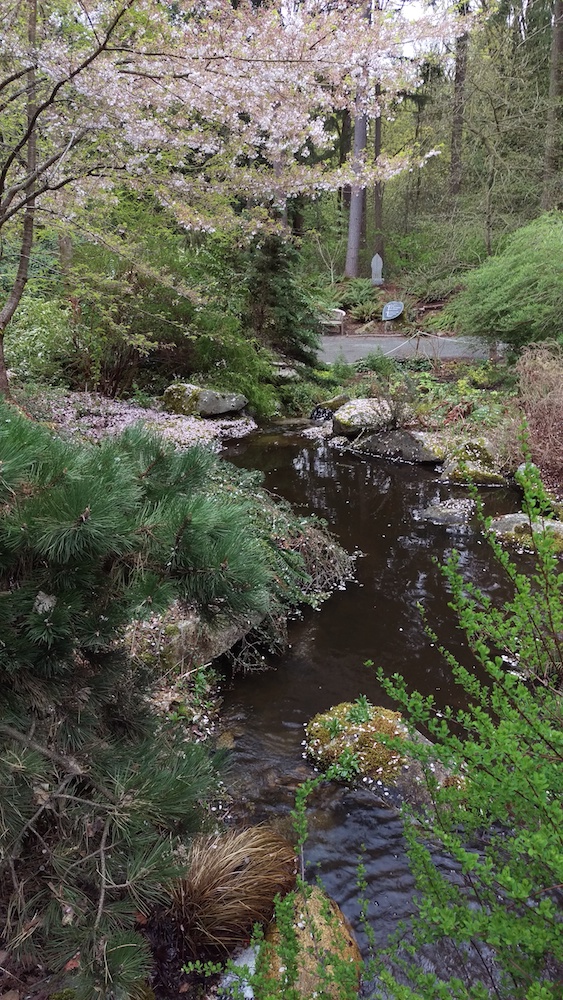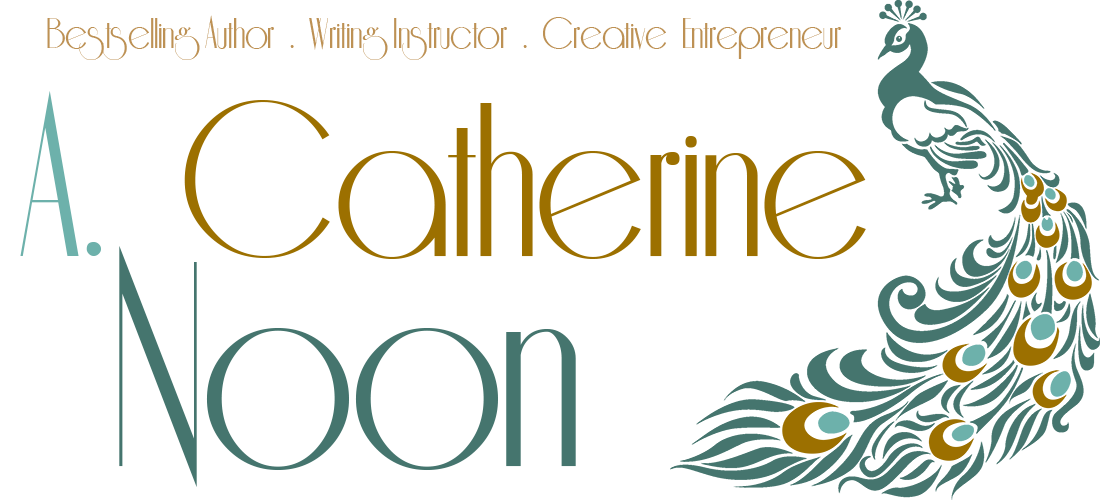H Is For Horticulture, the Science of Plants

This is a long view, just down from the Tateuchi Viewing Pavilion, toward the Ravine Experience. The piece in the distance looks like a high-backed faerie throne. The water goes under the walkway; I stood on a pathway bridge to take this shot.
Which got me thinking: what is horticulture? How is it different from gardening?
My husband and I, as geeks often do, talked about it yesterday and ruminated on the Latin origins of the word, “horticulture.” It’s composed of two Latinate words, “horto,” for garden, and “culture,” for… something. Probably culture, one would assume; but we already know from other studies that sound-based etymology is bad linguistics. We also know that the motto of the city of Chicago is “Urbs in horto,” or “City in a garden.” So we know horto and garden are connected. But where does “culture” fit in? Does it refer to the culture of gardening? Probably not, since vermiculture is the cultivation and care of worms, and agriculture is the cultivation and science of agri-stuffs, or crops. Which are growing things, just like hortos.
Aside from the pleasant mental gymnastics of our conversation, we decided that alas, to Auntie Google we must go. “Google, what is horticulture?”
“The word horticulture comes from two Latin words which mean ‘garden’ and ‘culture.’ Horticulture is the art and science of growing and handling fruits, nuts, vegetables, herbs, flowers, foliage plants, woody ornamentals, and turf.” From Extension: Issues, Innovation, Impact; “What Is Horticulture?” accessed from the following link, here.
What’s the difference between horticulture and gardening? Ian Graham, self-identified “Craft Gardener,” has this to say on Quora: “Horticulture is the production of plants for a purpose – food, ornamental, forestry, medicines, fuel etc. Horticulture is a science, using scientific research and the scientific method to produce ‘better’ and more productive plants. Gardening is a personal or community pursuit to produce environments (personal or public) of beauty and functionality, using plants (ornamental and food), water, and ‘stone’. Gardening also includes personal food production, ie veggie patches.” Accessed from the following link, here.
I like Mr. Graham’s distinction, “production of plants for a purpose:” aside from the pleasing alliteration, which, less face it, I’m all for that, I think it defines the science a little more. But “science,” in the old days, simply meant applying the scientific method: create a hypothesis, try it, record the results, try again. In gardening, that could be “I’ll try planting tomatoes in this pot.” Then record the results. “Well, that worked, but they need more sun so I’ll try that spot over there in Spring.” Lather, rinse, repeat.
So in some ways, I think horticulture is just a fancy way of saying gardening, a way to legitimize and sciencify something we humans have been doing for generations. But I’ll note this: they’re called Botanical Gardens, not Horticultural Exhibits. Though now that I say that, I suspect there probably are horticultural exhibits. This is one of the things that makes English so difficult, is its propensity for stealing from other languages and calling it English. 🙂 I think, on balance, that shall remain, as did Galadriel, myself; a gardener.
Next up is the Letter I like Iowa. But there aren’t any plants like Iowa, are there?
You’ll have to check back, Dear Reader; you’ll have to check back. Cheers!

I did not get notification of this lost so I’ll try again.
Did you check your spam filter? Maybe your email assumes it\’s spam, since it\’s coming via WordPress?
I think you might like this quote some farmers gave me recently \”Dirt is what is tracked in the house, Soil grows things.\”
You\’re right; I do love that! Thank you!